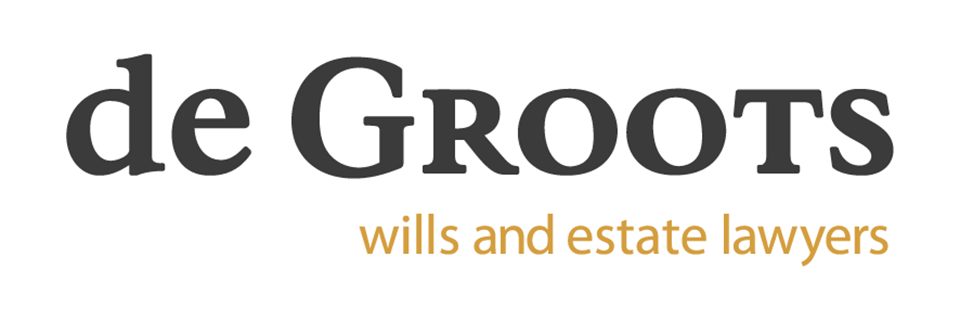
A surprising look at powers of attorney by Kate Varcoe, Special Counsel, and Max Williams, Senior Associate, at de Groots wills and estate lawyers
A power of attorney is one of the most important legal documents that you should have in place. A power of attorney appoints a person (or persons) to manage your affairs and make decisions on your behalf, especially when you can no longer make those decisions for yourself due to accident or illness (in the case of an ‘enduring power of attorney’).
A power of attorney document can look innocent enough but there are traps for the unwary. As suggested by its name, a power of attorney can give someone else a lot of power, and clear thinking and care are the prerequisites for the giving of legal power to another.
What an attorney can do that might surprise you
It might be widely understood that, by signing a power of attorney document (as principal), the principal is empowering a person (the attorney) to make decisions on the principal’s behalf. However, the meaning and extent of such a right may not be fully appreciated.
For example, many may not be aware that an attorney is generally entitled to litigate on behalf of a principal either by initiating or continuing existing proceedings on the principal’s behalf. Other things an attorney may broadly do, which might not be commonly known, include:
- Companies – an attorney may, subject to the terms of the company constitution, vote on the principal’s behalf as a shareholder to make decisions in respect of the company;
- Trusts – in Queensland, an attorney may make decisions on behalf of the Trustee of a trust (including a Family Discretionary Trust) where the principal is out of the state or is physically infirm or temporarily incapable of acting1 where the delegation of a trustee’s duties would otherwise be prohibited. However, in other jurisdictions like New South Wales, an attorney can only act as trustee if the power of attorney and the trust deed specifically authorise it2;
- Executor – in certain circumstances, an attorney may be empowered to take out a grant and administer a deceased’s estate on behalf of the principal executor3;
- Appointor – there remains a question over whether an attorney is able to make decisions as an appointor or guardian of a trust as of right, but certainly an attorney will be entitled to step into the shoes of the principal to make decisions as an appointor (to appoint or dismiss a trustee of a trust) where the deed or other governing document permits it;
- Self-managed super funds (‘SMSF’) – an attorney may be able to make decisions about the management of the principal’s superannuation fund as a replacement director or trustee, subject to the terms of the SMSF Deed/Constitution and the relevant legislation;
- Superannuation death benefit nominations – An attorney may also potentially make decisions on behalf of a member of a superannuation fund to refresh or even make a new death benefit nomination4, and as such deciding who receives the principal’s superannuation upon his or her death;
- Sever joint tenancies/alter property rights or interests – an attorney can sever a joint tenancy of property between, say, a husband and wife such that following the severance the husband and wife will own a discrete share in the property or bank account (the effect of which will prevent the rule of survivorship applying); and
- Gifts – an attorney can continue to make gifts after the principal loses capacity, provided those gifts are seasonal and in the nature of giving previously demonstrated by the principal, if the power of attorney document authorises such gifts5.
Limitations
It is important to note that an attorney will not be able to undertake any of the above acts where:
- the principal has capacity and does not direct the attorney to act;
- the principal has lost capacity and it would be a conflict transaction if the attorney were to undertake the act (i.e. from which the attorney or a relative or associate would derive a benefit) unless specifically authorised by the principal;
- the power of attorney document does not permit the act or limits the attorney’s powers; and
- generally, if the act is not in the best interests of the principal.
Use or abuse?
There is no single answer as to whether an attorney should be conferred broad powers or limited powers. The relationships, needs, circumstances and interests of the principal will always be different and should be considered at the point of drafting and then reviewed regularly. Similarly, while one might consider some acts of an attorney tantamount to abuse, others may view the same act as an appropriate and responsible use of the power.
As may be seen from the discussion in this article, powers of attorney require much care and consideration as to the possible implications and consequences to both principals and attorneys before entering into the arrangement. The input of specialist estate planning lawyers can assist greatly.
1.s.52 Trusts Act 1972 (Qld).
2.s.10 Powers of Attorney Act 2003 (NSW).
3.In the will of Bob Wild deceased [2002] QSC 200
4.Re: Narumon Pty Ltd [2018] QSC 185.
5.s.11 Powers of Attorney Act 2003 (NSW).
de Groots hosted a webinar on the topic 'More Than Just A Will: The importance of superannuation and powers of attorney in the estate plan' last week. You can view the webinar recording here.
